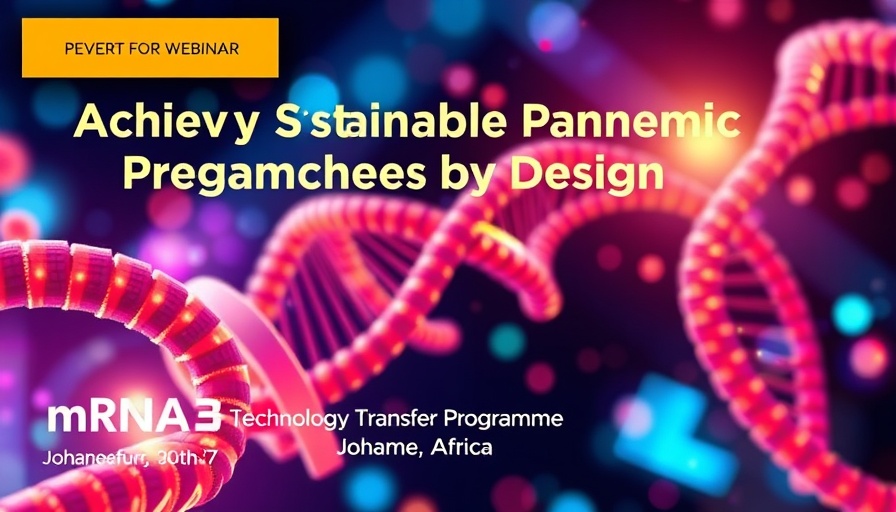
Rethinking Pandemic Preparedness: A Global Necessity
The COVID-19 pandemic taught us many lessons, primarily the need for robust pandemic preparedness strategies. As we reflect on these lessons, one initiative stands out: the mRNA Technology Transfer Programme. Launched in 2021 by the World Health Organization (WHO), this programme exemplifies a collaborative effort to harness mRNA technology in bolstering global health security.
What is the mRNA Technology Transfer Programme?
This groundbreaking initiative aims to empower countries, particularly in low- and middle-income regions, with the technology to produce mRNA vaccines and therapeutics locally. By increasing production capacity, the mRNA Tech Transfer Programme fosters equitable access to life-saving vaccines and reduces dependence on supply chains that can falter during crises.
Momentum Building: What’s Next for Global Health?
On June 12, 2025, a virtual event spearheaded by the government of South Africa and WHO will convene leaders from various sectors. This high-level meeting will bring together senior government officials, scientific leaders, and civil society advocates to discuss progress and the next steps for the mRNA Programme. With increased dialogue and engagement on pandemic preparedness, participants aim to reinforce global solidarity.
Equity in Access: A Key Focus
One of the notable themes of this initiative is enhancing equitable access to health innovations. By empowering regional partnerships and investing in local capacities, the focus shifts to ensuring that no one is left behind during health emergencies. This approach not only addresses immediate needs but also contributes to long-term health system sustainability.
Global Health Leadership: Who's Involved?
Distinguished speakers from diverse backgrounds will share insights at the upcoming event. Leaders from the government of South Africa will provide opening remarks, while representatives from organizations such as Afrigen Biologics and the Medicines Patent Pool will highlight their strategic contributions. This collective effort underscores the importance of collaboration in addressing international health challenges.
Pandemic Preparedness in the Future: A Vision
The call for renewed commitment from global partners emphasizes the urgency of establishing resilient health systems. Leaders will share strategic insights on funding mechanisms and regional capacities, enriching the dialogue around achieving sustainable pandemic preparedness. By working together, nations can build a more robust response framework for future health crises.
Climate Change: A Compounding Challenge
While enhancing pandemic preparedness, it's crucial to recognize that climate change poses a significant risk to global health. From increasing disease outbreaks to exacerbating health inequities, environmental factors interplay with health outcomes. As seen in various global health reports, addressing environmental issues is a critical aspect of ensuring population health.
The Call for Active Participation
The virtual event presents an opportunity not just for dialogue but for action. Health professionals, policymakers, and community leaders are encouraged to participate and contribute their perspectives. By engaging in these discussions, attendees can help shape the future of healthcare and the collective response to pandemics.
As we prepare for the future, it's clear that knowledge and collaboration are essential pillars in achieving health equity globally. Let this event serve as a launchpad for deeper engagement in the fight against pandemics and broader health issues.
Join the efforts to advocate for sustainable health innovations and enhance preparedness for international health crises.
By fostering a commitment to equitable health solutions and leveraging cutting-edge technologies like mRNA, we can work together to build a healthier, more resilient world for all.
 Add Row
Add Row  Add
Add 




Write A Comment